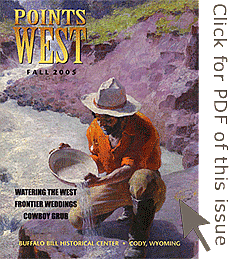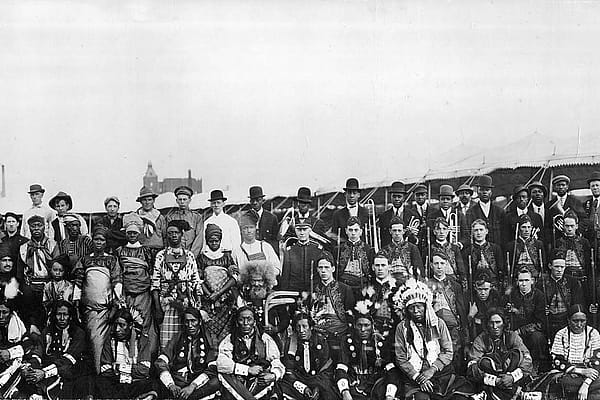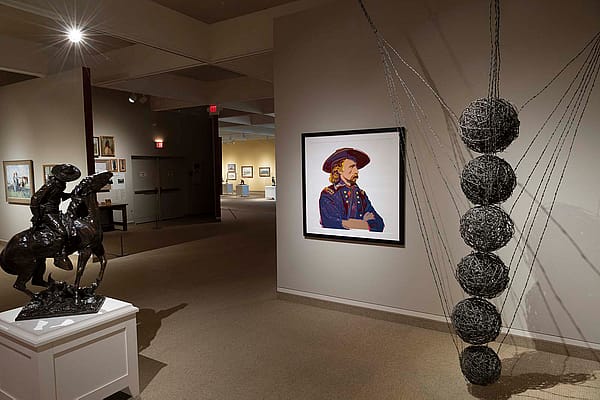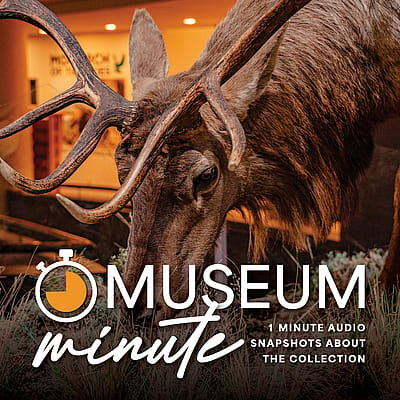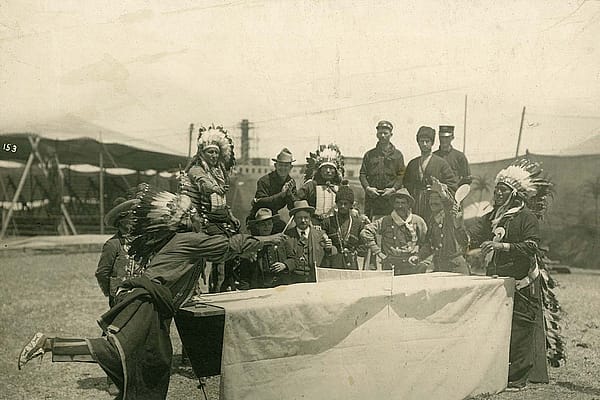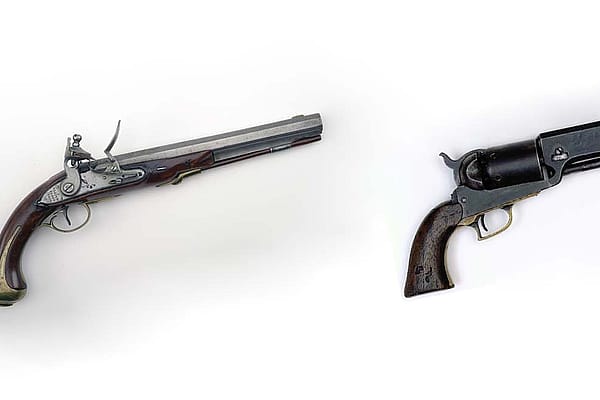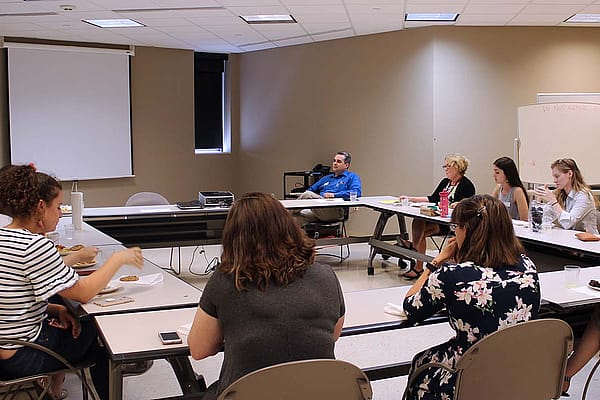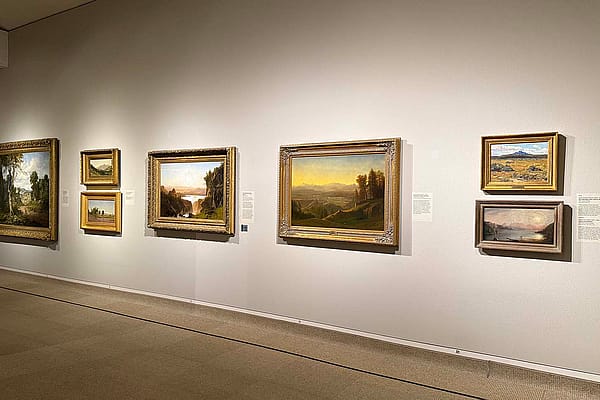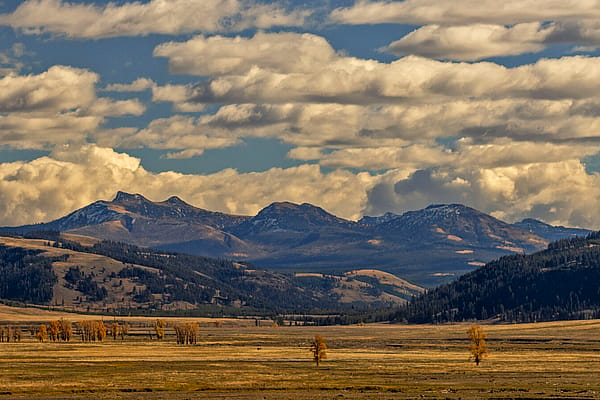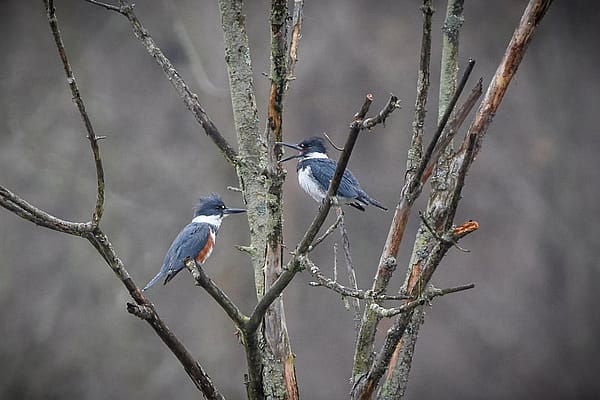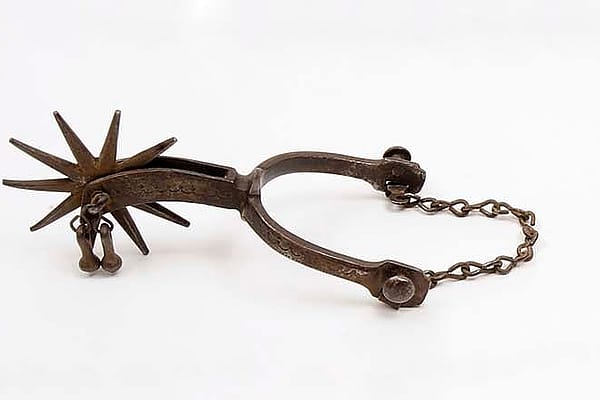How the Cowboys Said It – Points West Online
Originally published in Points West magazine in Fall 2005
Buckaroos, Wranglers, and Hoosegows:
How the Cowboys Said It
By Frances Clymer, Director
Park County Library System, Cody, Wyoming (now retired)
Western words have a flavor all their own. Distilled from a variety of rich sources over the last two centuries, expressions identified with the American West often have colorful origins. Western vernacular is replete with terms that have their roots in the linguistic legacies of the Spanish, French, German, Native American, and Anglo populations of the region.

For example, the term “earmark” is derived from the ancient custom of cutting distinctive notches in the ears of livestock to identify ownership. Western ranchers, in addition to owning a distinctive brand, often add an earmark to their cattle. Today we use this term to denote something set aside for a special use as in, “I have those funds ‘earmarked’ for a vacation.”
The words “calaboose” and “hoosegow” evoke nostalgia for Hopalong Cassidy and his radio show, 1950s Saturday morning television programs, and B-Westerns. They come to us from calabozo, Spanish for “dungeon” which, when appropriated by the Louisiana French, became calouse, and from juzgado, Spanish for “court of justice.” A likely Latin ancestor is the word calafodium, a combination of the pre-Latin word cala (protected place or den) and the Latin foedere (to dig). How’s that for deep roots?
In his Dictionary of the American West, Wilfred Belvins defined a wrangler as “…the hand who took care of the horses; now any cowboy, especially one who leads dudes on rides.” Blevins attributes a Mexican origin (caballerango) to this term, which first appears in the context off the American cowboy in the 1888 writings of Theodore Roosevelt. In his 1899 work Vocabulario de Mexicanismos, Joaquin Garcia Icazbalceta describes the caballerango as “the manservant at ranches or private homes who tends to and saddles the horses.” However, according to a number of other sources, the word “wrangle” has much earlier roots in the Low German word wrangeln, which means to struggle or wrestle. Whatever its etymology, wrangle is an apt word for the often backbreaking work that goes into handling horses.
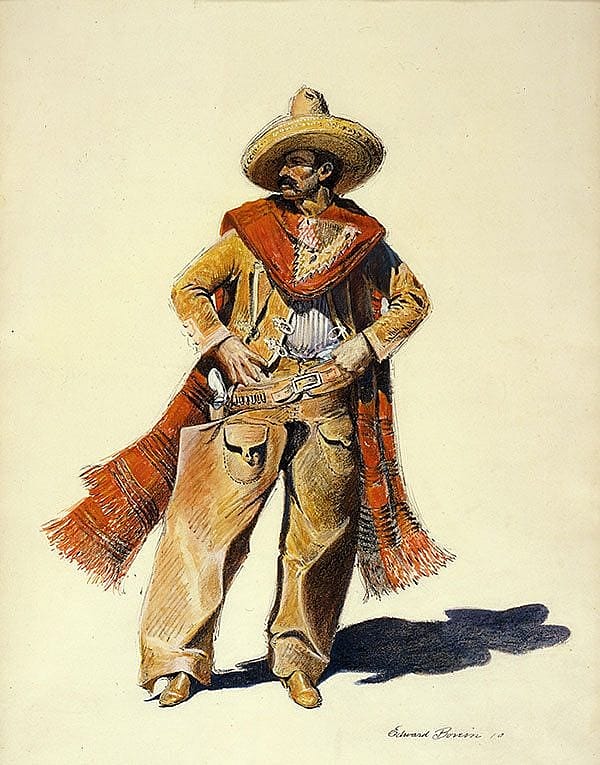
The earliest cowboys were Mexican vaqueros (herdsmen or cowherds), and it is to them we owe many terms associated with the wild and wooly West. “Buckaroo,” “bronco,” and “lariat” are but a few of the “cowboy” words of Spanish origin. As English-speaking populations began to arrive in the West, they had trouble pronouncing the Spanish words. Thus vaquero took on its Anglicized form and became “buckaroo”; and la reata became “lariat”—a braided rawhide rope 40 to 80 feet in length. It was used in the rounding up and handling of cattle. The Spanish word bronco means “rough” or “course” and was used to refer to a mustang and later, by extension, to an unbroken horse. “Mustang” is itself derived from mesteño, a Spanish term used to describe wild horses and cattle. The vernacular of the West is deeply indebted to its earliest European settlers, the Spanish.
Symbolic of westward expansion in the nineteenth century, the “prairie schooner”—that essential means of transporting family and households across the broad plains of the West—has both English and French as its sources. The schooner, an 18th century North American ship, was important to trade along the Atlantic coastline, easily maneuvering through a variety of conditions. From a distance, as it progressed across the landscape, the prairie schooner (a smaller, modified version of the Conestoga wagon) resembled a ship sailing on a sea of grass. “Prairie” is a word borrowed from the French prairie, meaning large, rolling grassland. The word “coulee” (a deep ravine), which appears in the old cowboy song “I Ride an Old Paint,” also comes from the French.
Finally, when cowboys found themselves at the end of a long day on the trail, their colorful vocabulary peppered the tall tales they traded with one another. Then, each would swear to the story’s truth saying, “Believe me; I ain’t tryin’ to hornswoggle ya none.” Hornswoggling refers to the dodging and wriggling movement of a roped steer, which eventually throws off the rope. Thus, the steer hornswoggles the cowboy and makes its escape. Of unknown origin, this word has now come to mean to fool or dupe—and no cowboy worth his salt would admit to anything of the sort…at least not to another cowboy.
The language of the cowboy—colorful and descriptive, simple and direct—best tells the story of the Old West even today.
Post 169
Written By
Nancy McClure
Nancy now does Grants & Foundations Relations for the Center of the West's Development Department, but was formerly the Content Producer for the Center's Public Relations Department, where her work included writing and updating website content, publicizing events, copy editing, working with images, and producing the e-newsletter Western Wire. Her current job is seeking and applying for funding from government grants and private foundations. In her spare time, Nancy enjoys photography, reading, flower gardening, and playing the flute.
